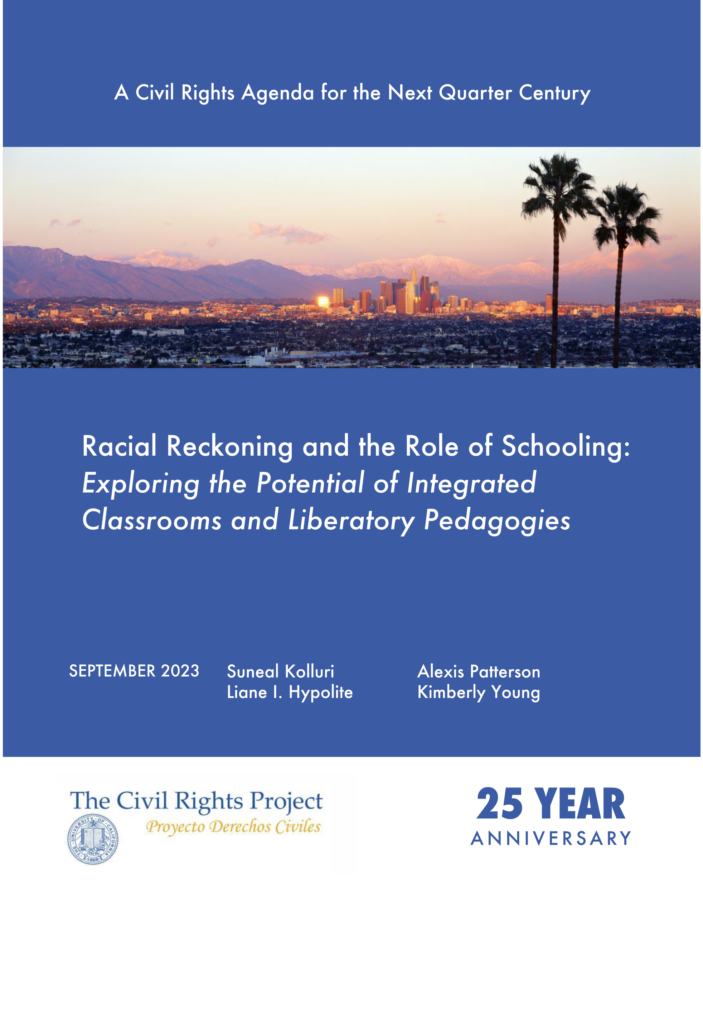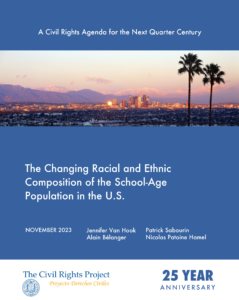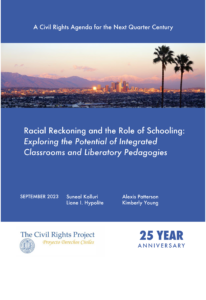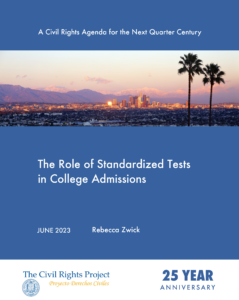Executive Summary
Racism is a pervasive presence in the United States. Despite an alleged national “racial reckoning” after the police murder of George Floyd in 2020, little has been reconciled with respect to race. Race relations remain strained, as evidenced by mass shootings in Black communities by White shooters, continued inequalities in wealth and opportunity, and laws that make illegal certain discussions of race. Schools have found themselves at the center of debates about racism. In the back-and-forth about how race should be discussed in schools, few have broadly considered the role of schooling in racial reconciliation.
Schools have long existed as a means of maintaining democracy in the United States and, given the centrality of race relations to the success of democracy, this paper suggests that schools can be called upon to address racism as well. As such, this paper looks to our rapidly diversifying nation and asks: “What would it take to move closer to meaningfully addressing the legacy of racism in the United States, and what role might schools play in this process?”
Our schools remain segregated for many students, but promising developments suggest that more integration is possible. According to a team of scholars led by Amy Stuart Wells, a majority of Americans support government action to address school segregation and anti-segregation measures are particularly popular in communities of color. In particular, Stephen Kotok and David DeMatthews suggest that bilingual schools and magnet schools may be essential avenues for desegregation. Integration matters for racial equality. New research finds that Black students attending desegregated schools for five years saw about a 30% increase in annual earnings.
School desegregation alone, however, is insufficient for racial justice. In racially diverse schools, many classrooms remain segregated, particularly through gifted programs and advanced coursework. Recent efforts to de-track math courses in California and implement “enrichment clusters” in Queens, New York have offered promising avenues for diversifying classrooms in integrated schools, despite some political resistance from privileged families.
Lastly, considering classroom pedagogy is essential to racial justice. Developing racial literacy among white students and students of color alike will help facilitate racial reconciliation. In California, and in some districts across the United States, Ethnic Studies courses are becoming graduation requirements, necessitating that students of all racial backgrounds consider race in school. Recent studies have demonstrated the importance of this approach. Matthew Nelsen writes that “exposure to content of this kind led white youth to be significantly more likely to agree that Asian, Black, and Latinx people made significant contributions to American society.” Thomas Dee and Emily Penner at Stanford recently found that students of color engaging in critical pedagogy saw significant gains in academic achievement – increasing attendance by 21 percentage points and overall GPA by 1.4 points. A literature review on Ethnic Studies courses by Christine Sleeter and Miguel Zavala emphasized the potential of Ethnic Studies courses to enhance ethnic identity development among students of color, improve overall student achievement, and can improve racial attitudes for White students as well as students of color.
This paper will further discussions of the potential role that schools and classrooms might play in advancing racial justice. While certainly, significant challenges exist in genuinely reckoning with race in the United States – schools as essential training grounds for democracy – are a crucial component of any movement toward racial justice.
This paper is the fourth in a series of research papers on the potential for social change and equity policies in the nation, commissioned and published by the UCLA Civil Rights Project/Proyecto Derechos Civiles, exploring a civil rights agenda for the next quarter century.
In compliance with the UC Open Access Policy, this report has been made available on eScholarship: http://escholarship.org/uc/item/2nx465z0











